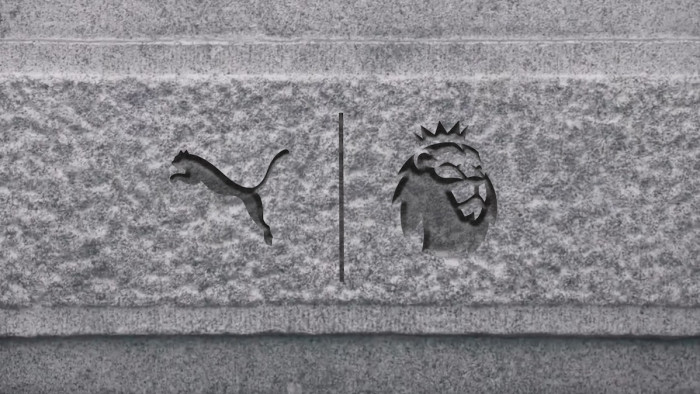There've just been 12 big changes to the football rulebook (just in time for the Euros...)
Get yourself up to speed


Despite the fact that, as we all know, football is the beautiful game, that doesn't mean it's perfect.
As such, officials are always looking for ways to meddle with it and justify their jobs improve the game and its laws.
Some small changes to the game were approved by the International Football Association Board in London in January. Announced to the world by former referee David Elleray this week, they'll be coming into force for the European Championships in June and will be used by England during their two warm-up games on 22 and 27 May. The changes are actually part of a comprehensive revision of the laws, which has reduced the length of the rulebook by 10,000 words to 12,000.
Elleray explained that, “We are trying to help situations which tend to occur very often and are a bit crazy. We have tried to use much clearer language. We tried to avoid a lot of unnecessary repetition and we tried to make it up-to-date. Because the laws have evolved piecemeal and no one has done a comprehensive review there have been inconsistencies."
There will also be a two-year trial of video technology to assist referees in cases of goalscoring, red cards, penalties and mistaken identity, which will take place in Italy. Meanwhile, penalty goals and a clearer definition of handball are apparently next on the list for discussion.
Read on for the headline changes you need to know about.

Triple punishment
Possibly the most significant of all the rule changes. It has long been argued that the 'triple punishment' of a red card, a penalty and a subsequent suspension for the concession of a 'last man' foul was too harsh. However, from June 1, a red card will be downgraded to a yellow - if the foul was an attempt to play the ball. Violent conduct, handball and grappling still count as red cards, however.

Dummy penalties
Another potentially big rule change will see players punished for feinting at the end of a run-up when taking a penalty. Feinting itself has been outlawed since 2010, and players were previously asked to retake the kick. Now, however, the penalty taker will receive a yellow card and an indirect free kick will be awarded to the opposition. Note that 'stuttering' is still allowed, as is Messi's 'pass penalty'.

Pre-match red cards
Sure to become known as the 'Vieria and Keane' law after their infamous 2005 fight in the tunnel, players can now be sent off before the game even begins - at any time after the pre-match inspection. However, both teams will still start with 11 players - the team who had suffered the red card would have to replace the offender with a named substitute. They would then have one less substitute on the bench.

Treatment on the field of play
Elleray: “If a player is injured from a challenge which is punished by a red or yellow card, he can have quick treatment on the field of play and does not have to leave. It always seemed unfair that the victim team was down to 10 men and the guilty team has 11 against 10.”
'Up to 20 seconds' of treatment will be allowed.

Kick off
The current law says the ball must go forward at kick-off and players have to be in their own half. The rule is being changed to allow the ball to go in any direction at kick-off as long as it moves. Players must still begin in their own halves, however.
Kick-offs can now go backwards, apparently, which is sensational news for Wimbledon c.1988 pic.twitter.com/yUbAhh7j99
— Adam Hurrey (@FootballCliches) May 9, 2016

Penalty shootouts
Elleray: “If a player gets sent off during kicks from the penalty mark, the other team does not also go down to 10. So if it goes all the way through, the guilty team’s best player takes a second kick against the innocent team’s worst player.”
From now on, both teams will be reduced to the same number of penalty-takers.
Elleray: “We are trying to make sure the laws are fair and support the team that has been offended against and do not reward people for breaking the laws of the game.”

Clearing up offside
Elleray: “Part of the law book says when players commit an offside offence you give a free-kick where the offence occurred. The other part of the law book says you give a free-kick where the player was when he was in the offside position. So a player can actually move 20 yards from being in an offside position … and it is only the moment he plays the ball that he is penalised. The law tells you to give the free-kick in two different places.
“So, in future, the free-kick will always be given where he commits the offside offence, even if he is in his own half, because you cannot be in an offside position in your own half, but you can go back into your own half to commit an offside offence.”

Drinks breaks
The 2014 World Cup in Brazil saw the first-ever officially sanctioned drinks breaks in football. Drinks breaks are now allowed in all 'excessively hot' conditions.

Changing boots
Elleray: “If a player goes off to change his boots, at the moment he has to wait until the game is stopped and the referee has to go and check his boots before he can play again. Now we are saying his boots or whatever can be checked by the fourth official, the assistant referee even, and [the player can] come back during play.”

Stopping an opponent reentering the field of play
Elleray: “Two players go off the field of play. One tries to get back on to play the ball and the other one grabs him off the field of play to stop him going back on. At the moment the referee gives a red or yellow card and restarts with a drop ball, which is clearly wrong. So we will be giving a free-kick on the touchline or the goal-line. If it is inside the penalty area, it can be a penalty kick.”

Logos on corner flags
Club logos will now be allowed on corner flags.
Elleray: “It happens in the Premier League (and below) but is actually against the laws of the game.”

Referees encouraged to use common sense
Elleray: “We are encouraging referees to referee according to the spirit of the game and to use common sense. ... If you can play the game and there is a minor breach of the law, report it to the authorities and sort it out afterwards. Do not be too black and white in minor areas.”
(Images: Rex)
Latest
Related Reviews and Shortlists









